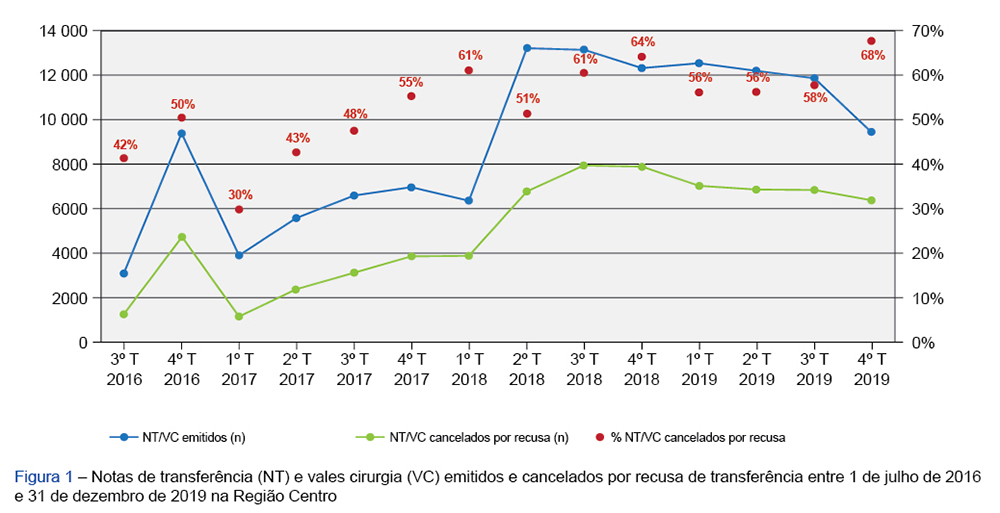SOCIAL MEDIA
Portuguese Medical Association's Scientific Journal

Introduction: In Portugal, the rate of refusals regarding transfer between hospitals through surgery vouchers is high, which makes it difficult to meet maximum waiting times for elective surgeries. The objectives of this study are to examine how many vouchers were issued and refused between the third quarter of 2016 and the fourth quarter of 2019 and the risk factors associated with their refusal, in Central Portugal
Material and Methods: Data was obtained in the database of cancelled vouchers and the waiting list for surgery on the 31st December 2019. Multiple logistic regression was used to investigate risk factors.
Results: The number of issued vouchers increased after 2018 and the rate of refusals has been above 55% since the 3rd quarter of 2018. Refusal was more likely for individuals aged 55 years or above (OR = 1.136; CI = 1.041 – 1.240; OR = 1.095; CI = 1.005 – 1.194; OR = 1.098; CI = 1.002 – 1.203, for the age bands 55 - 64, 65 - 74 and 75 - 84, respectively), for inpatient surgery when compared to ambulatory (OR = 2.498; CI = 2.343 – 2.663) and for Orthopaedics when compared to General Surgery (OR = 1.123; CI = 1.037 – 1.217). The odds of refusal also varied across hospitals (for example OR = 3.853; CI = 3.610 – 4.113; OR = 3.600; CI = 3.171 – 4.087; OR = 2.751; CI =3.383 – 3.175 e OR = 1.337; CI = 1.092 – 1.637, for hospitals identified as HO_2, HO_7, HO_4 and HO_6, respectively).
Conclusion: In this study, we have confirmed that the number of issued surgery vouchers increased after the administrative reduction of maximum waiting times in 2018 and that the rate of transfer refusals has been increasing since 2016 and has remained above 55% from the third trimester of 2018 onwards. Some of the factors for which we obtained a positive association with refusal are age, inpatient surgery (compared to ambulatory) and Orthopaedics (compared to General Surgery).